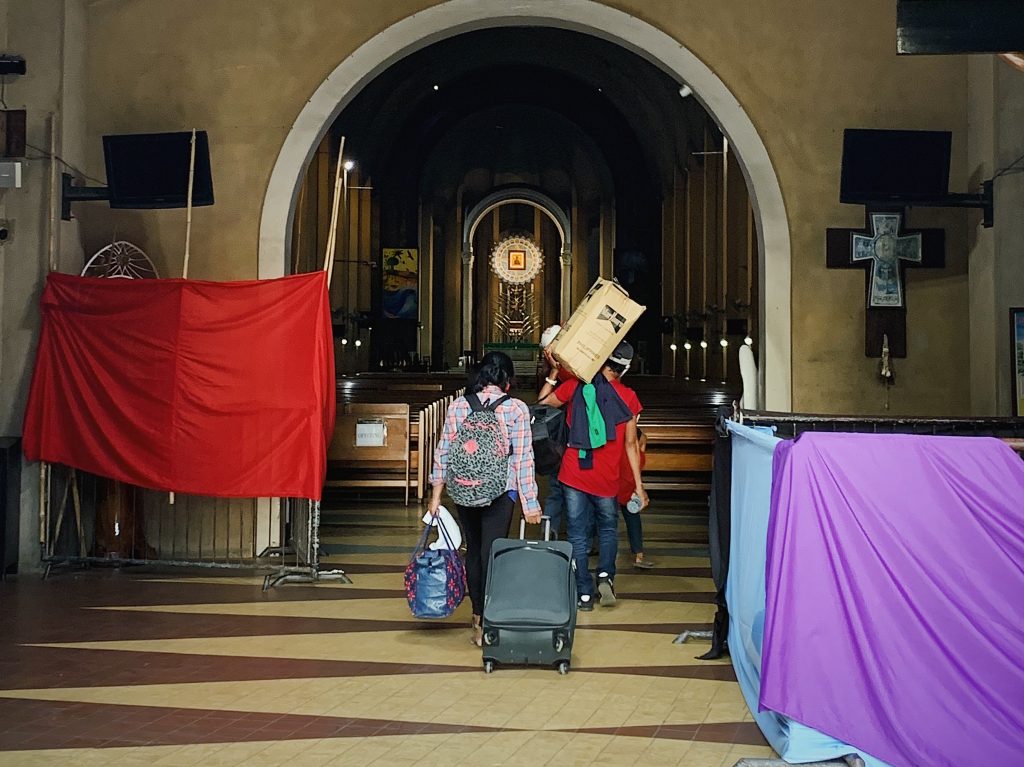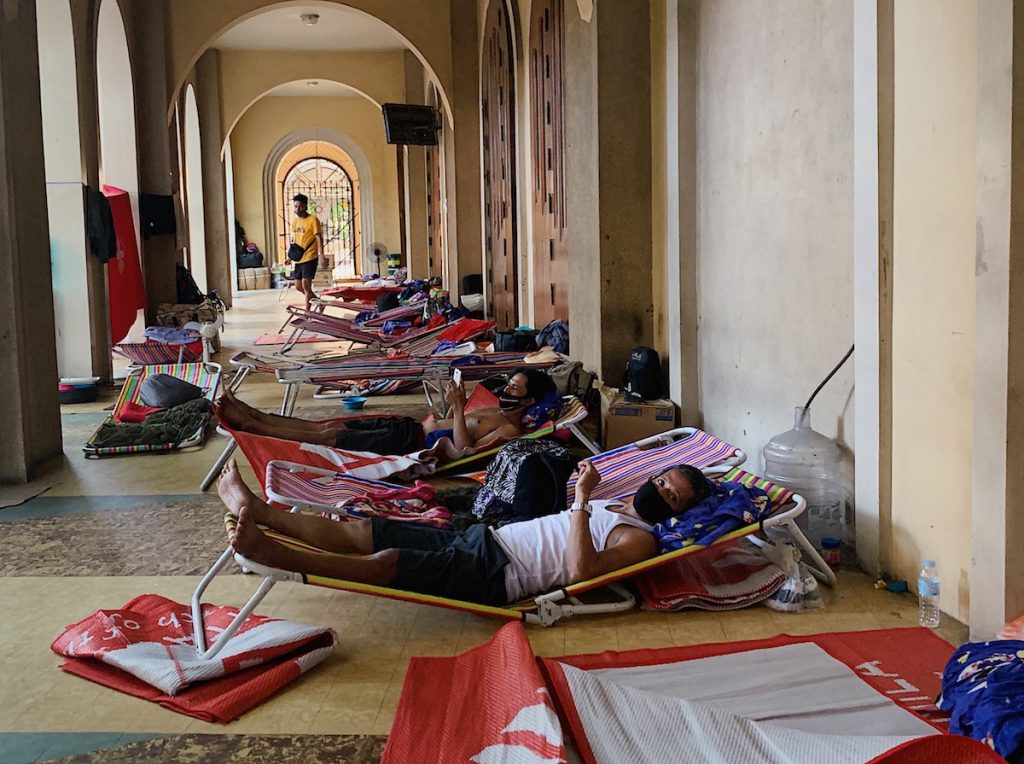While the Philippines was asleep, seven young men found themselves walking under the midnight moon.
Albin Marbella, 26, the eldest, said they were on their way home to Albay, a province ten hours by bus south of Manila.
The young men worked in a food warehouse in Bulacan, on the northern side of the Philippine capital.
It was a good job, said Albin. They didn’t want to leave, he said.
Then on the night of June 9, the landlord knocked on the men’s rented apartment and demanded rent payment.
The men, who only earned US$8 a day before the lockdown due to the coronavirus pandemic, had nothing in their pockets.
“Please allow us to sleep for a few hours,” pleaded 22-year-old Marvin Dayo to the landlord. His request had little effect.
In the middle of the night, the seven young men packed whatever they could fit in their bags, along with hope that on the road they would encounter a better future.
They had been contractual workers in the frozen food warehouse for three months already when the government declared a lockdown.
When worked stopped, they did not receive anything from the company.
They survived on free rice given to them from a friend. Occasionally, they would receive a US$6-allowance that they would divide among themselves.

They did not ask for leave from their employer when they decided to walk home. “We no longer care for money, we just want to go home,” said Dayo.
They walked for 10 hours from Bulacan to Manila. They would stop for a few minutes break. They knew that if they would stop too long, exhaustion would overcome them.
They endured the burning concrete through their slippers on their tired soles and carried on until they reached the Catholic church in Manila’s Baclaran district.
The church — the National Shrine of Our Mother of Perpetual Help — run by Redemptorist missionaries has become a shelter for people caught in the midst of the pandemic.
In one corner of the church sat Flordeliza Daga with her two young children who came from Zamboanga del Norte province in the southern Philippines.
The 27-year-old mother booked a plane ticket for Manila despite the lockdown to escape what she described as “an abusive husband.”
From her job as a sales girl for agriculture supplies in Mindanao, Flordeliza was able to save US$160, enough, she thought, to sustain her and her children during their trip back home to Bicol.
When she stepped outside Manila’s airport on June 12, she did not recognize the Manila she left five years ago.
“I didn’t know everything was expensive and transportation was terrible,” she told LiCAS.news.

She was planning to stay with her sister in Laguna, south of Manila, before going home to Bicol but there was no bus due to the lockdown.
She paid about US$20 for a taxi to a cheap hotel in Manila where she hoped she and her children could stay for the night.
After two nights, her hard-earned money was almost gone.
With only $20 left in her pocket, Flordeliza appealed for help and went to the church in Baclaran with her kids.
“I had to stand by my decision to leave my husband,” she said, adding that she knows that it was her mistake to get stranded in Manila.
At the church, help came. At least 5,300 individuals were sent home to the province through the assistance of the Office of the Vice President.
More people came knocking on the gates of the church.
“We did not realize how big this was until more people came,” said Redemptorist Brother Nosi Balgado.
He said the work has been “stressful” but also “fulfilling.”
“We have to make sure that the people are also taken care of when they arrive at their destination,” he said.
Still more people are stranded in the church because some provinces are under lockdown or strict community quarantine.
The government’s program to bring back people to the provinces has been suspended to prioritize individuals, especially returning migrant workers.

Authorities also fear that sending people back to the provinces would increase cases of the new coronavirus disease.
Even the parents of the seven young men have expressed apprehension that their children are in danger of infection.
But Ray Boton, one of the men, said he is happy to be back with his family soon “with or without work.”
Albin, who is married with a 1-year-old daughter, said he is worried how he can sustain his family, but said he has to go home.
On June 18, Flordeliza and her children and the seven young men will wait no more. They are going back home.







